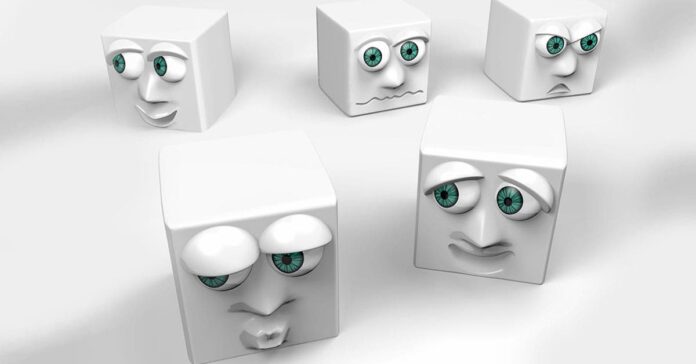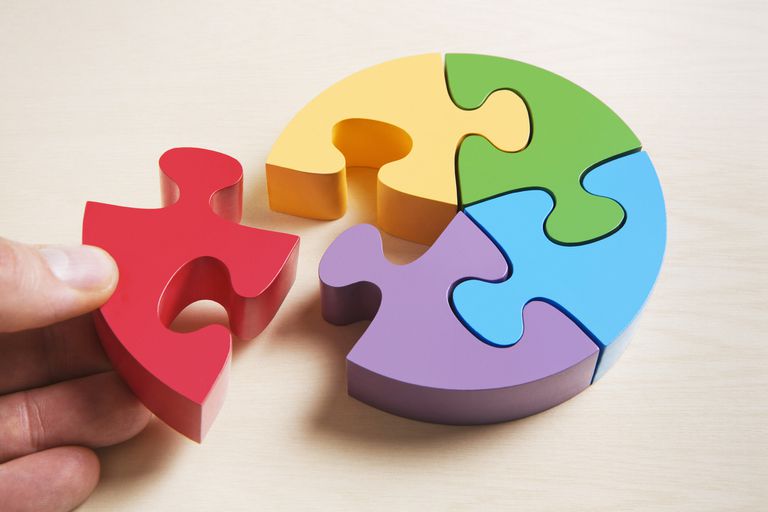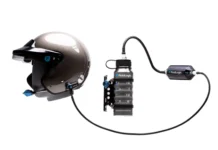
The big five personality traits are also known as OCEAN: openness, conscientiousness, extraversion, agreeableness, and neuroticism.
These traits are measured via different tests, tools, or techniques. For instance, there may be multiple-choice questions, such as:
- Are you the center of attention when you go out with others or to a party? (measuring extroversion)
- Do you trust others? (measuring agreeableness)
- Are you stressed or anxious when you think about the future? (measuring neuroticism)
One of the most popular concepts in psychology research is related to the big five personality traits test. The big five personality traits test assesses your personality. This test was initially developed in 1949 by D.W. Fiske and later was improved by several other researchers.
Employers often use this tool to find the right workforce and predict future performance based on the five dimensions measured by this test.
However, keep in mind that this test is not designed to diagnose conditions. If you are concerned about your mental health or one of your loved ones goes through a difficult time, online therapy may help you obtain the specialized help you need to improve your well-being.
1. Openness

Being open refers to a personality trait that encompasses your willingness to learn new things, your imagination, and your eagerness to have new experiences. An open person is adventurous and is interested in numerous activities.
At the core of openness, creativity is extremely important. This is because open-minded people feel more comfortable when they have to make decisions. For instance, you may want to travel, discover new cultures and dishes, and always have those interests that others might not even consider.
Alternatively, a person who scores low on this trait is more traditional. One disadvantage would be that they tend to have a more difficult time when it comes to problem-solving because they may be outside of their zone of comfort.
2. Conscientiousness

A conscientious person is goal-focused and easily controls their impulses. If you score high on this trait, you may be extremely organized and highly structured. Most people who score high on conscientiousness prefer to work in fields related to research, retail, or even high-retail finance. In these fields, goal-focused, organized approaches are a must when applying for a job.
One example may be the HR departments or project management. These teams require people who plan ahead and have to consider different long-term objectives when making decisions. If you know someone who is always planning ahead, staying in touch with you and checking how you feel, they may be a conscientious person.
Alternatively, a person who scores low on this trait is not so organized. They tend to procrastinate, may not be punctual, or even fail to do certain tasks altogether. These individuals also dislike structure.
3. Extraversion

Also spelled “extroversion”, extraversion is a trait that you’ve probably seen in many of your friends. It can be easily identified in people as extroverted individuals love others’ attention and spending time with their peers.
The common traits related to extraversion include:
- A bubbly personality
- Talkativeness
- High emotional expressivity
These people can be easily identified during social interaction. If you know someone who has a large group of friends, is always in the center of attention, and thrives on spending time with acquaintances and feel at ease with strangers, they will score high on this dimension.
Alternatively, we also know the opposite – introverted. These people prefer to be alone, are not so energetic in social situations, and might not be so willing to make new friends. These people may choose jobs that do not require too much social interaction, while extroverts thrive in sales, teaching, marketing, and even politics.
4. Agreeableness

Agreeableness is defined as a dimension in which people show affection, altruism, and do not hesitate to trust others. Highly agreeable individuals are likely to help others and are prosocial. They are emphatic and often comfort others when they have a difficult time.
The opposite term is “disagreeableness”, but it is defined relatively differently. These individuals lack sympathy and often manipulate others. There is also a lack of interest in others’ well-being or their problems.
Agreeable people are often found in fields where they can help others, such as mental health, charity, or medicine. Other people who may score high on this trait often volunteer or work in social studies.
5. Neuroticism

Neuroticism is a trait defined by:
- Moodiness
- Sadness
- Anxiety
- Instability
It is not anti-social behavior or a metal health condition. Instead, scoring high on this dimension means that someone suffers from high stress and perceived threats, which makes them sad or results in emotional instability.
Individuals with this trait are often irritable, have mood swings, and experience anxiety. These people might have to handle very high stress levels at work, especially if you notice major mood swings during the day.
Neuroticism is mostly based on anxiety – and an individual’s ability to cope with stress and risk. These individuals often overthink many aspects of their life and have a hard time relaxing, even if they are in a familiar environment, such as their homes.
People who score low on neuroticism are more stable when they handle stress and risk. Low neurotic people do not experience much sadness or anxiety, and they prefer to live in the present moment rather than the future.
Why Is the Big 5 Personality Theory Important?

Currently, the five-factor theory is used in the workplace. Many employers use this test in an attempt to predict future performance as each personality trait affects the working environment differently.
Here is the list of personality traits and how they may affect the working environment:
- High openness means that the employee is willing to learn new skills or use new tools, so they might be ideal for constantly evolving job positions.
- Highly conscientious individuals are more likely to meet tight deadlines, keen to finish their work and do not require many incentives to do it; low conscientiousness, however, means that the employee may need more time and attention to finish their tasks.
- Extraversion can be advantageous depending on the role; leaders may need to be extraverted, while technical jobs require introverts.
- Highly agreeable individuals are suitable for healthcare, for instance, while the opposite may be successful in teams where this trait is not so valued (i.e., technical jobs).
- High neuroticism is not suitable for high-stress positions that are constantly changing.
Many employers use this test to make hiring decisions, retain staff, or have a better understanding of how their teams work. It may also be used to reallocate people within the organization for maximum efficiency or learn what motivates their team.
Summary
All in all, the big five personality traits are used by numerous organizations to find the right staff. These do not aim to diagnose certain conditions; rather, it categorizes people according to their personality in order to find the most appropriate position that helps them thrive and attain career success.
If you find it difficult to embrace your strengths and find the inner power in yourself, talking to a therapist can help you. Try finding and connecting with your mental health professional on Calmerry, online.








